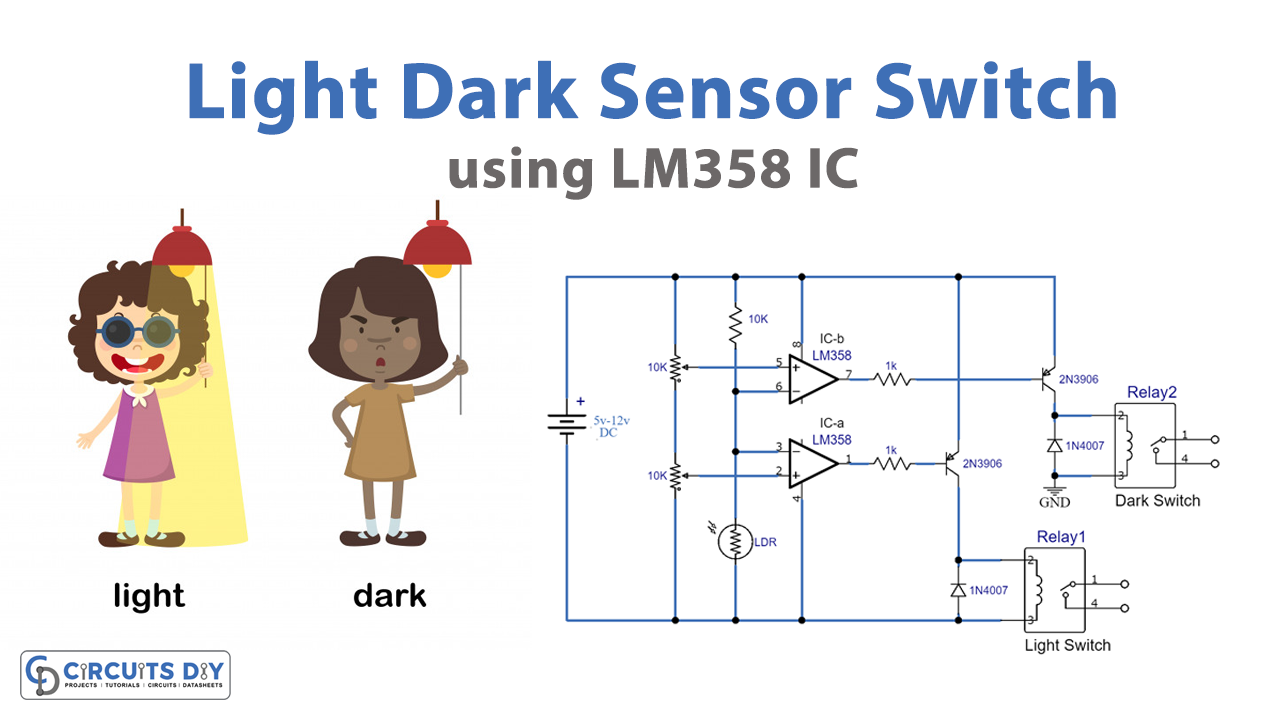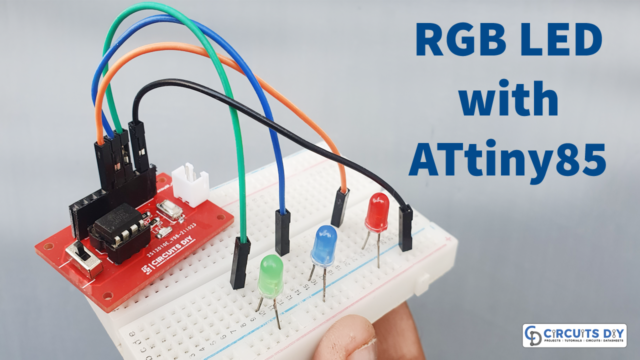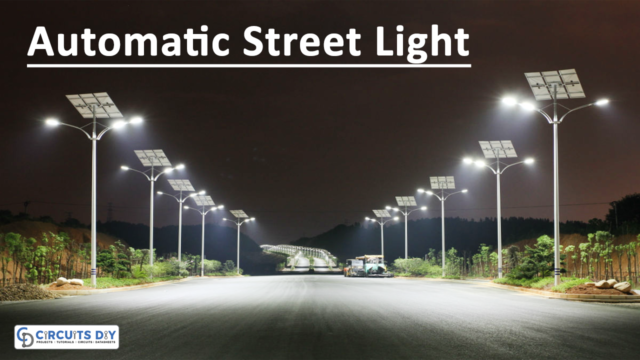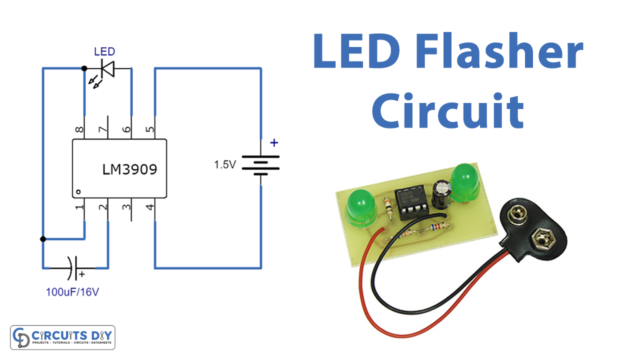In this project, we will show you a project of a single chip light dark sensor switch utilizing LM358 IC. At the yield output of the circuit, there are two relay switches, which can be acclimated to initiate on wanted light and dark levels. The circuit can be utilized to control electronic appliances on the ideal light levels or day and night.
A light detector senses light. LDR meets the lowest resistance as the light level increase and the circuit turns on the LED. We can alter the sensitivity utilizing the preset variable resistors 10K. The circuit is an excellent energy saver and only consumes 500µA in standby mode.
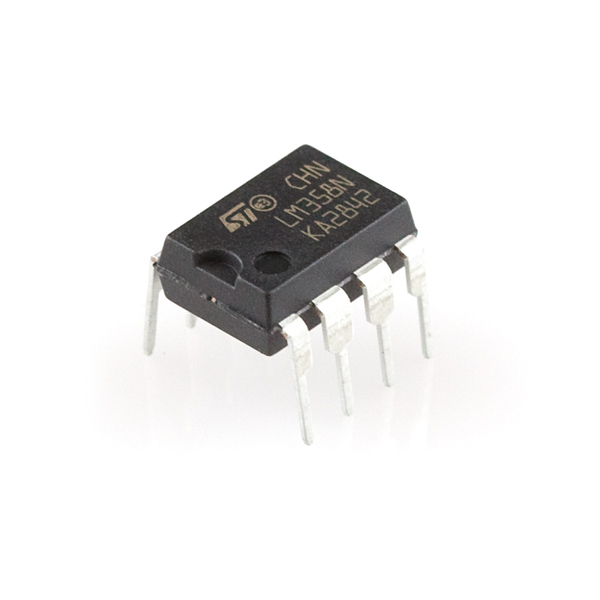
Hardware Components
The following components are required to make Dark Sensor Switch Circuit
| S.no | Components | Value | Qty |
|---|---|---|---|
| 1. | IC | LM358 | 2 |
| 2. | Transistor | 2N3906 | 2 |
| 3. | Relay | 5V | 2 |
| 4. | Switch | – | 2 |
| 5. | LDR | – | 1 |
| 6. | Variable Resistor | 10K | 2 |
| 7. | Resistor | 1K, 10K | 2, 1 |
| 8. | Battery | 5V – 12V | 1 |
LM358 Pinout
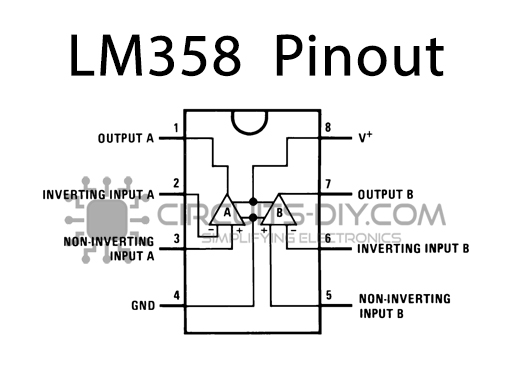
For a detailed description of pinout, dimension features, and specifications download the datasheet of LM358
Dark Sensor Switch Circuit
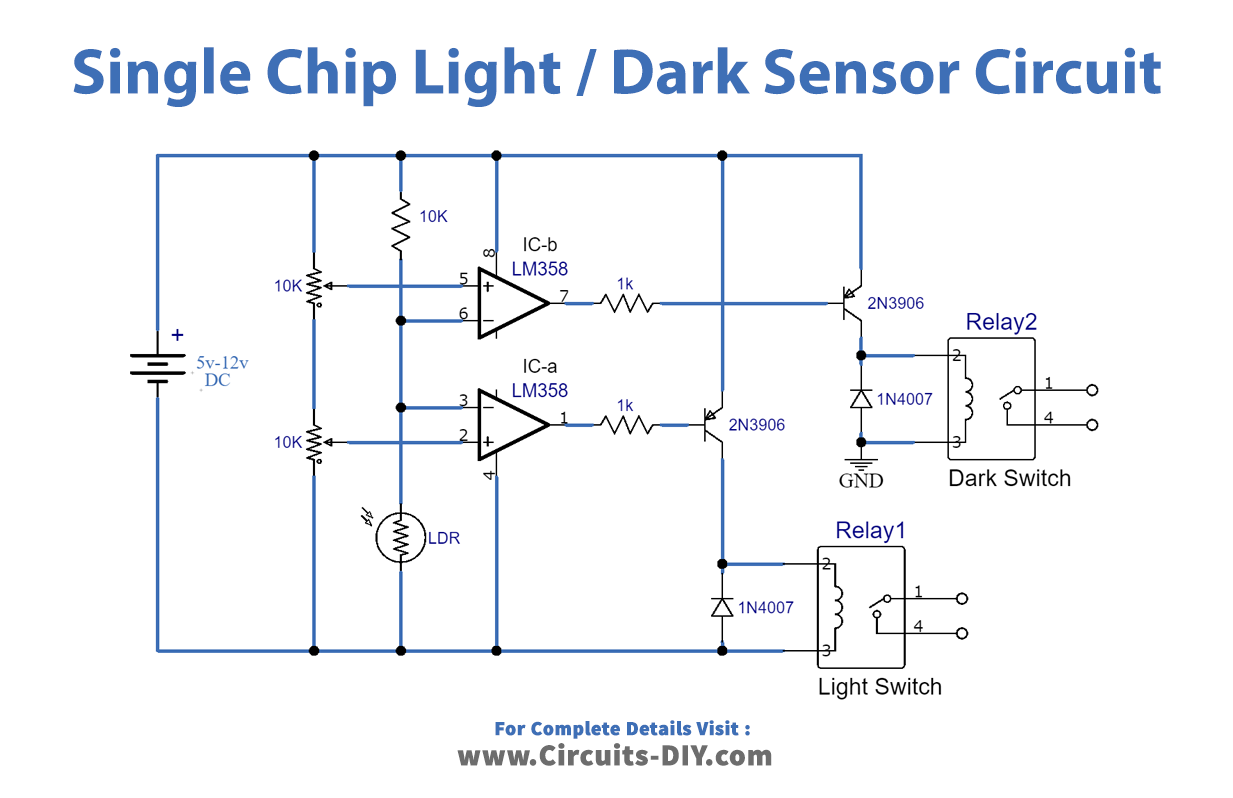
Working Explanation
The circuit is worked around an LM358 dual operational amplifier IC; the IC contains two thoroughly separate operational amplifiers. In this circuit, we have utilized both the opamps of that IC and wired them in comparator mode. At the yield output of each opamp, we have associated a DPDT transfer switch marked relay1 and relay2. The relay1 is associated with the light sensor circuit and it tends to be balanced with VR1 to be actuated on the ideal degree of light, and the relay2 is associated with the dark sensor circuit that is worked around the second opamp of the IC. The working voltage of this sensor switches circuit is 5V to 12V DC.
Applications and Uses
These sensors have a lot more use these days:
- The most widely recognized use in our everyday lives is in mobile phones and tablets.
- Most compact individual gadgets presently have surrounding light sensors used to adjust brightness. In the event that the gadget can detect that it is in a dark spot, it turns down the screen brightness to save power.
- Another typical use for light sensors is controlling automatic lights in vehicles and streetlamps.


